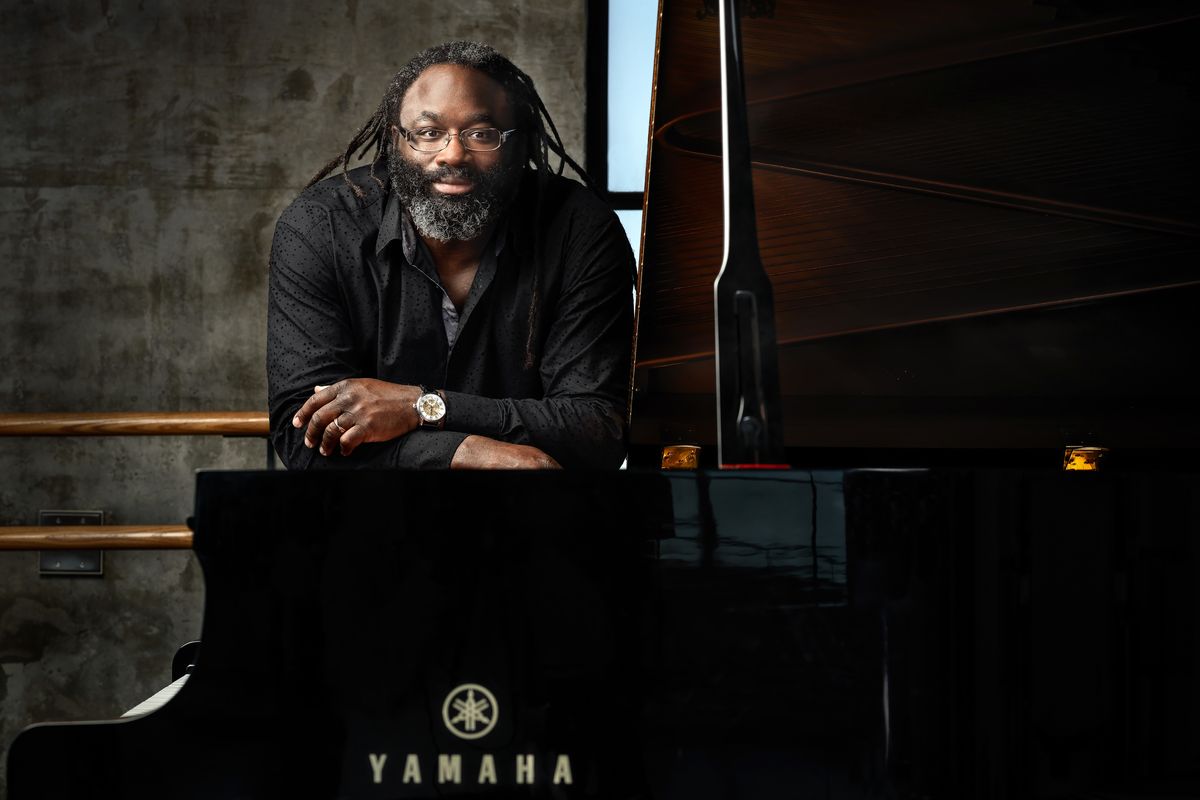Festival finale triple play
Longtime collaborators Kim, Pratt join Bailey for concerto

Ludwig van Beethoven’s Concerto for Violin, Cello and Piano in C Major – known as the Triple Concerto – is the only work the master ever wrote for more than one solo instrument.
The triple is among the works that will be performed on Sunday during the Northwest Bach Festival finale at St. John’s Cathedral. Festival artistic director Zuill Bailey will play the cello part, Soovin Kim will take the violin part, and Awadagin Pratt will play the piano part.
“It’s a very cool piece, and it’s unusual in the repertoire and you don’t get to do it a lot, so I do look forward to each time I get to play it,” said Pratt, who teaches at the Cincinnati Conservatory when he’s not performing around the world. “It’s a real blend. There’s solo playing like you’re playing your own concerto, there’s chamber music playing because you’re part of a trio, and there’s the orchestral playing, because the trio that you’re a part of is playing with the orchestra.
“It’s really special. It’s sort of everything that we do as a concert musician,” he added. “It’s a really tremendous piece.”
The finale also will feature the Bach Festival Orchestra, with guest conductor Piotr Gajewski, performing the J.S. Bach Orchestral Suite No. 3 in D Major, and the W.A. Mozart Symphony No. 35 in D Major, also known as the Haffner Symphony.
The Beethoven will bring together three musicans who are longtime friends and collaborators. Bailey and Pratt are frequent recital partners and recorded “Brahms: Words for Cello & Piano” in 2011. Kim and Bailey were part of the quintet that recorded “Arensky, Dohynányi: Live from El Paso Pro-Musica January 7 2006.”
The personal connection is one of the things that drew Pratt to the Northwest Bach Festival.
“Zuill is a longtime friend, as are a couple members of the orchestra, so I’ll be able to get out and eat a lot of great meals, but there will be a lot of practicing going on.”
Pratt met Bailey when he was 20, at a music festival in New York.
“He was 14 and we met playing pingpong,” Pratt said.
It’s not Pratt’s first time before Spokane audiences. Four years ago, he was a guest artist with the Gonzaga Symphony Orchestra, which is conducted by Kevin Hekmatpanah, who Pratt met at a strings camp when they were kids, and who went to the Peabody Conservatory with Bailey – see, it’s a small world. Pratt also performed with the Spokane Symphony, back in 1998 as part of a Festival at Sandpoint program conducted by Gunther Schuller, Bailey’s predecessor at the Northwest Bach Festival.
In addition to the final concert on Sunday, Pratt will perform a recital at Barrister Winery on Saturday night. “Thematic Transformations” will include Variations and Fugue on a Theme of Handel by Johannes Brahmes, the Bach-Busoni Chaconne and the Franz Liszt’s Sonata in B minor.
While Pratt has had the Liszt piece in his rotation for years, the other pieces he’s rediscovering. “They’ve all been with me. The Brahams I think I’ve played the longest. I learned the Brahams and the Bach in school, then they were part of the repertoire when my career began when I won the Naumburg International Piano Competition in 1992,” he said. “Before this season, I hadn’t played the Bach in 10 years and the Brahams in 15, so they’re new to me again.”
The Bach piece was written originally for the violin, an instrument Pratt trained on extensively before dedicating himself to the piano.
“It’s a piece that I knew as a violinist when I was first learning it,” he said. “(Ferruccio) Busoni was this Italian master who transcribed that and a lot of the works of Bach for the piano. It’s a monumental piece for violin solo. Bach wrote for the harpsichord and the organ, and when Busoni reimagined the piece, he reimagined it as an organ piece. So the piano is sort of calling to bear the sonority and colors of the organ. It’s almost a double transcription, from violin to organ to piano.”